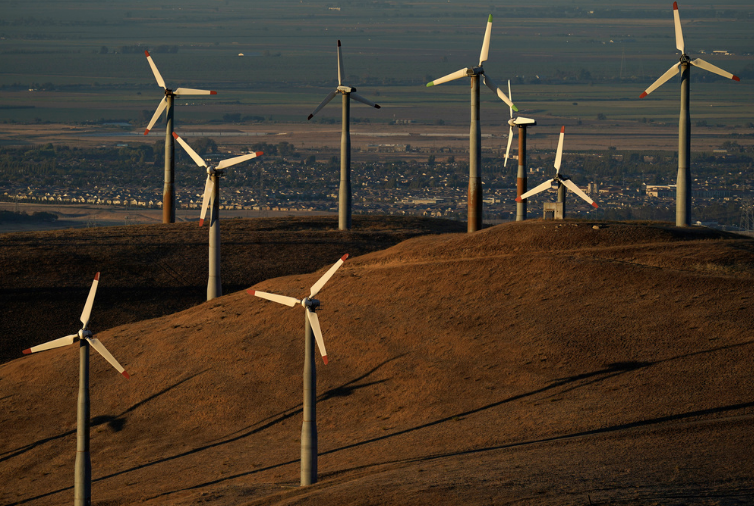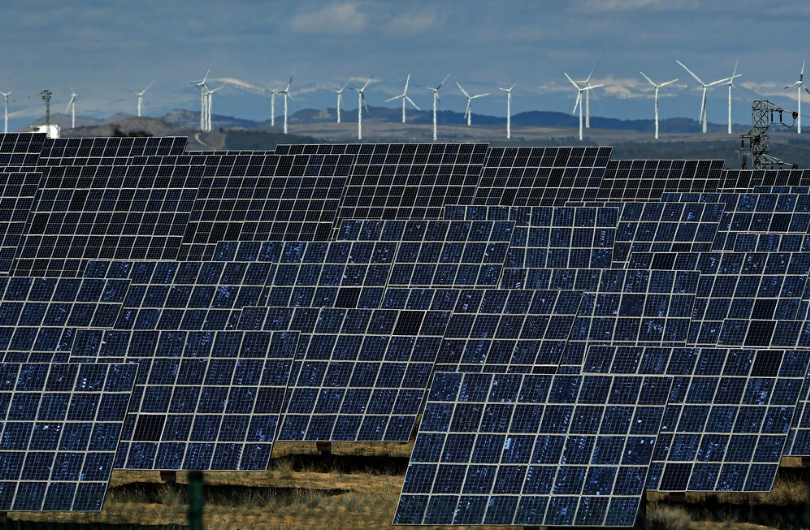[Op-ed] EU to Double Renewables by 2030: A Shift in Energy Geopolitics
A field of Wind Turbines. Source: AP Newsroom / Godofredo A. Vásquez
Negotiators in the EU recently reached a deal to double EU renewables by 2030, with the aim for renewable energy to make up 42.5% of their power grid by the end of the decade. This deal follows the region's attempts to wean off of its dependence on Russian fossil fuels, which they have vowed to do by 2027. This huge transition to renewables will require at least another 113 billion euros invested in renewable energy and hydrogen infrastructure, according to the European Commission.
Not only does this move have the potential to shift the EU towards a more sustainable future and help to fulfill their goals of reaching net zero by 2050, but is also further evidence of how the energy transition is shifting geopolitics as energy alters the EU’s relationship with Russia and both of their roles in the global energy market.
Following Russia’s invasion of Ukraine, there has been a stark decline in natural gas imports from Russia; before the war Russia was responsible for providing nearly 50% of the EU’s natural gas supply. However, in May 2022, the European Council agreed to phase out their dependence on Russian fossil fuels, including limiting oil exports by 90% by the end of 2022 and reducing their overall gas demand by 15%.
In 2022, gas demand in the EU also dropped by 13%, which would be the equivalent amount of gas needed to power 40 million households. This was the steepest drop seen by the EU in history. Policy decisions played a large role in this, allowing large consumers to shift to alternative energy sources as natural gas from Russia slowed and energy prices skyrocketed.
While the EU has made commitments to reduce emissions, limiting fossil fuel gas imports also serves as excellent motivation to increase the region’s use of renewables. The war operating as a catalyst for major energy decisions, including the deal to double renewables by 2030, will cause a major change in global energy politics, leading to a shift motivated by both war and environmental action.
Looking more closely at EU countries, all are making efforts to ramp up renewable production in light of reducing fossil fuel imports from Russia. Italy, the UK, and the Netherlands are increasing efforts to develop more wind projects, while Belgium is considering a return to nuclear power. While a necessary step for climate action, this sudden and rapid shifting of energy is temporarily destabilizing the grid.
Solar Panels in northern Spain. Source: AP Newsroom / Alvaro Barrientos
Where energy supply normally operates according to the previous day's demand, renewables such as solar power operate differently, reaching peak production in the middle of the day when demand is lowest. As energy geopolitics shift to a much more renewable-based grid as we are seeing in Europe, we must also change the way we handle renewables to continue to meet the demand oil and gas have fueled for decades.
While fueled largely by the cut-off of fossil fuels from Russia, the EU’s energy transition is just one region of the world experiencing shifting geopolitics as a result. Worldwide, the costs of renewables are falling, technology is improving, and power demand continues to be on the rise. While oil and gas have shaped international relations over the past century, from oil relations between the Middle East and the US to intra-state relations in the EU, we will see how renewables once again upend global relationships


